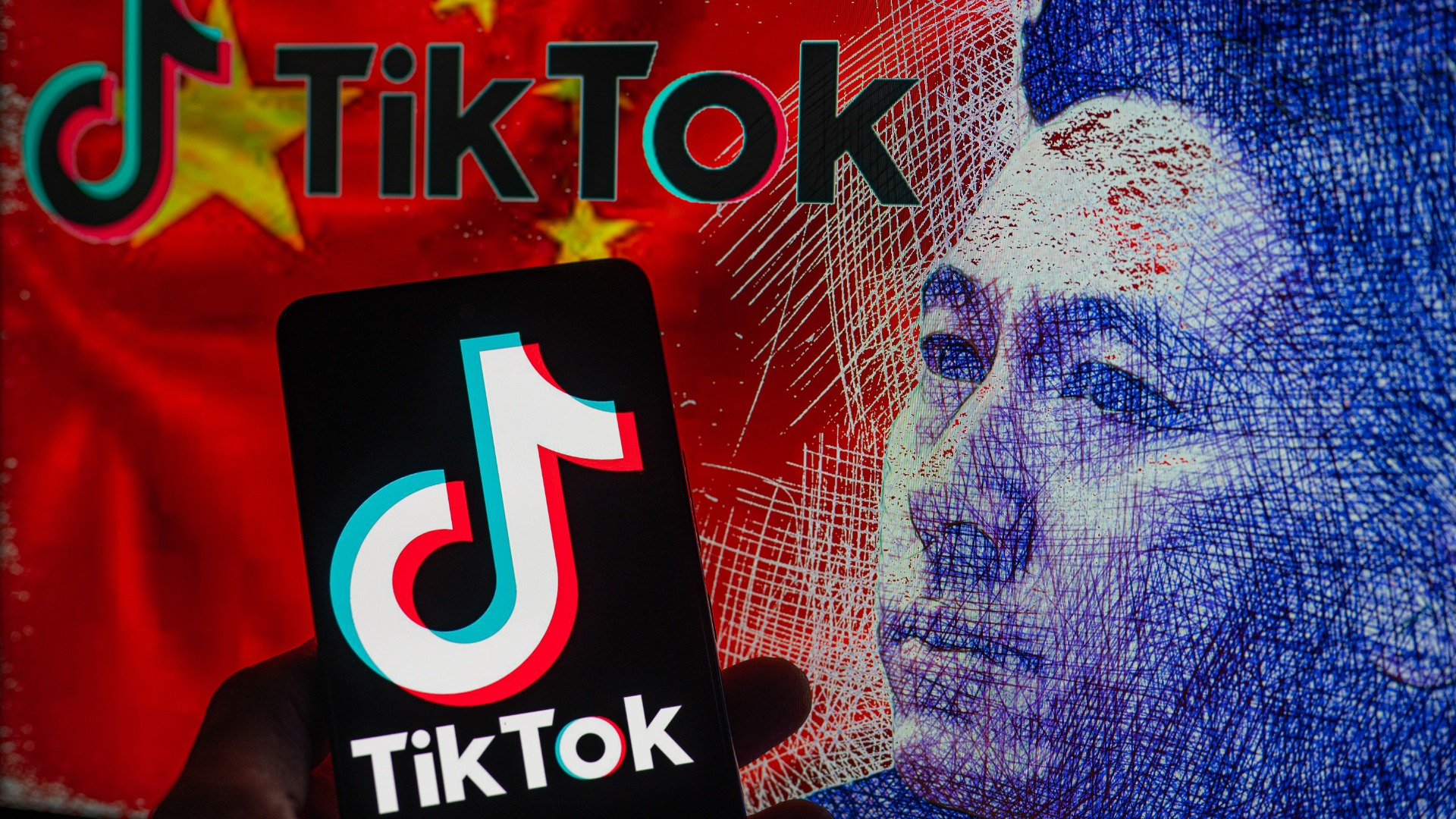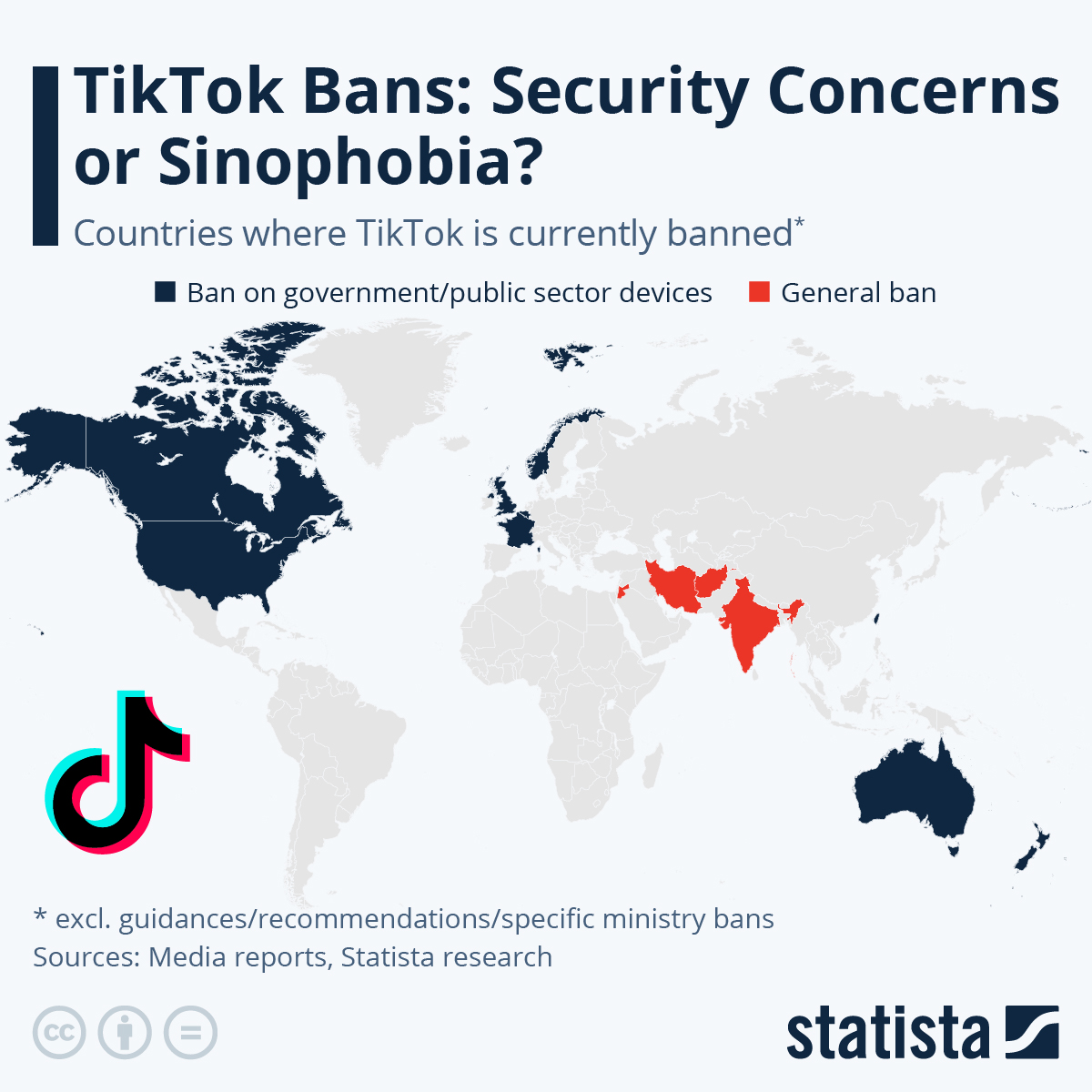
After years of trying, the RESTRICT Act appears to be the US government's best shot so far of finally achieving one of its long-awaited goals: banning TikTok.
A possible TikTok ban has been, in fact, the #1 hot topic this year. Many countries around the world have already forbidden using the Chinese-owned video sharing-app on government devices. However, if the popular social media is finally blocked for all Americans, a VPN service may be needed to keep accessing the app.
But why does the White House seek to restrict TikTok in the first place? And why does the US government need a new law for doing so?
TikTok's privacy problems
Perhaps the most downloaded app worldwide, TikTok counts over 150 million users in the US alone. While the video-sharing app got famous for its short viral videos and glamorous influencers, it is now for its aggressive data collection practices.
These include a hungry data-driven algorithm, its in-app browser, and constrained privacy settings. Its tracking methods are very intrusive, too, as they collect tons of user data like keystroke patterns, location, browser history, and even biometric information.
Especially problematic seems to be TikTok's Focused View, a feature unique to business accounts able to even track people's personal interactions.
"This is not only an invasion of privacy, but is opening the gate for dystopian claims of invasive-emotion detection - both incredibly frightening, and often unscientific," said Estelle Massé, Global Data Protection Lead at Access Now, one of the privacy advocates warning of the risks of such functionality.
Nonetheless, the public is getting quite nervous about the matter. As our exclusive survey showed, most people are put off by TikTok's personal data gathering. However, despite TikTok's privacy issues being concerning, popular US-owned platforms aren't much different.
For instance, Facebook and Instagram use proprietary in-app browsers too, while, also the likes of Google and Microsoft are notorious for collecting vast amounts of personal data.
That's why privacy advocates are pushing for a comprehensive data privacy regulation like the proposed ADPPA, instead. Contrary to the EU, UK and many other countries, the US still lacks a GDPR-like legislation to protect citizens from data collection abuses.
Such a law "will have a real impact" by protecting citizens' data no matter the platform, digital rights advocacy group the Electronic Frontier Foundation (EFF) argues in a blog post.
"Foreign adversaries won't be able to get our data from social media companies if the social media companies aren't allowed to collect, retain, and sell it in the first place."
TikTok's links with China
"Foreign adversaries"—that's the key term here. In fact, the RESTRICT Act has been presented as a framework to review and restrict certain information communication technologies where US user data interacts with foreign adversaries.
What are these countries? So far, China, Cuba, Iran, Russia, Venezuela and North Korea make up the blacklist, but the government would be able to add new entries in the future.
TikTok is owned and operated by Chinese software company ByteDance—an ownership that the US has always looked upon with great suspicion. Those concerns have been escalated lately.
In November last year, FBI director Christopher Wray raised the alarm on how China might weaponize users' data belonging to US citizens.
This isn't simply conjecture either, and the tech company isn't without blame. In fact, the news that some ByteDance employees had been spying on some US journalists—an isolated event, the company claims—has helped to consolidate those fears.
Now, lawmakers are calling for a total ban citing national security concerns.
Yes American social media companies also collect data on Americans and that should be addressed But @tiktok_us is another level of dangerThey don’t just collect data for their own use,they are controlled by & directly give our data to a foreign government in #ChinaDecember 14, 2022
Some US politicians are also worried about on how TikTok might be pushing content to favor Chinese Communist Party’s political views, too. As Wray put it, for "brainwashing the youth."
TikTok strongly rejects such allegations. "TikTok has never shared, or received a request to share, U.S. user data with the Chinese government. Nor would TikTok honor such a request if one were ever made," its CEO Shou Zi Chew pledged at a congressional hearing recently.
The social media giant has also been working with US company Oracle on the so-called Project Texas to ensure US user data cannot be accessed by foreign actors.
Many commentators believe, in fact, that the proposed TikTok ban might be more motivated by geopolitical concerns instead of concrete evidence.
"Before taking such a drastic step, the government must come forward with specific evidence showing, at the very least, a real problem and a narrowly tailored solution. So far, the government hasn’t done so," wrote EFF.
TikTok ban's legal issues
As tensions grow, the White House and its allies have been taking precautions.
TikTok has, in fact, already been banned from government devices in and out of the US over recent months. Doing so turned out to be relatively straightforward. However, an outright ban or forced sale will have some legal challenges to overcome.
After all, former President Trump already tried a similar action in 2020. TikTok challenged this in court at the time and, surprise, it won. The measures were then revoked by Biden when he came into power.
That's because such provisions go against the First Amendment which protects Americans' freedom of speech—with or without foreign adversaries' involvement. Another law, so-called the Berman Amendments, also restricts the President's power in regulating the free flow of information in and out of the country.
Earlier this year, other bills—namely the Data Act and the ANTI-SOCIAL CCP Act—tried to find a solution to this conundrum. According to experts, these provisions will fail to do so.
That's exactly where the RESTRICT Act comes in. The proposed bill is, in fact, going to exempt certain information services from the Berman Amendments. This would finally give the US government the constitutional power to regulate foreign technologies deemed as dangerous.

TikTok ban: how likely is it?
As we have seen, the RESTRICT Act comes as a means to make a total ban a legal outcome to achieve in the US. However, there are still quite a few logistical challenges to cope with it.
Many US tech companies, including the biggest like Apple, have parts of their operations based in China and other potential adversaries countries, for example.
On top of that, such a decision could open up to further geopolitical repercussions—think if Chinese Communist Party responded with similar blocks on US businesses operating in China as well.
TikTok has been, in fact, branding this campaign as a "politically-motivated ban that will do nothing to advance the national security of the United States."
More importantly—for American users, at least—civil societies and privacy experts are warning that a total ban will curb people's freedom of speech and their right to access information.
"Prohibiting the use of certain technologies or social media sites bleakly opposes the vision of an open and free digital world and raises serious concerns over the future of digital freedom in the US," secure VPN provider Private Internet Access told TechRadar.
Whether or not a TikTok ban will be eventually implemented, you should probably consider getting a TikTok VPN to make sure of accessing the app no matter the lawmakers' final decision.







